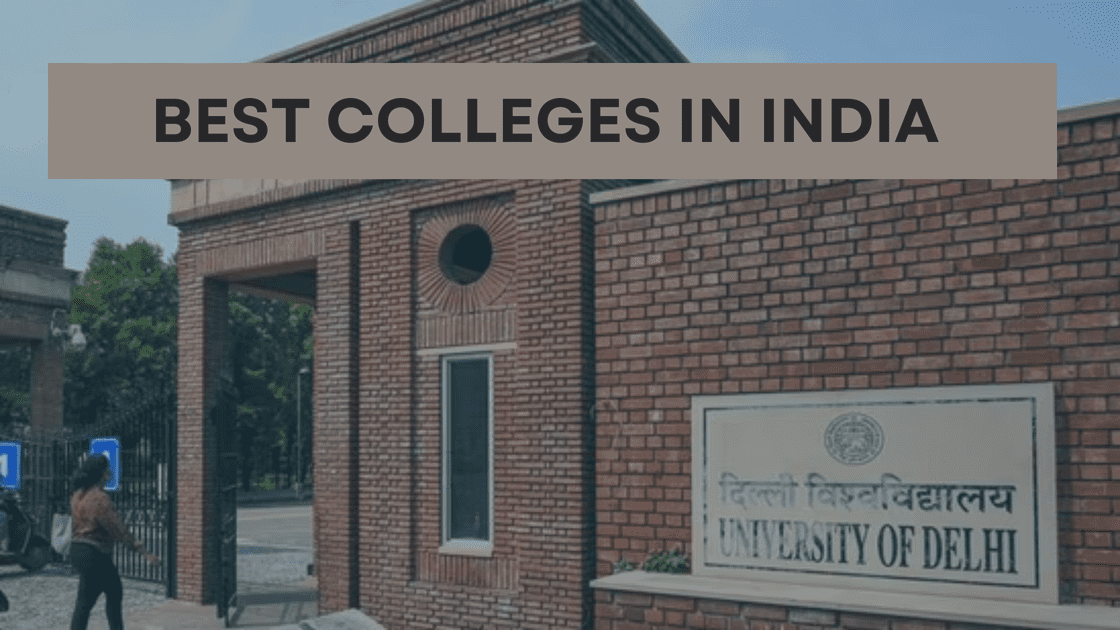Choosing the right college is one of the most critical decisions in a student’s academic journey. India is home to a diverse array of top colleges offering quality education across various disciplines such as engineering, medicine, management, law, and liberal arts. But with so many choices, it’s natural for students to feel overwhelmed. This guide is designed to help you understand what makes the best colleges in India stand out, the exams they accept, the average fees, and their placement records.
Types of Colleges in India and Their Specializations
India’s educational landscape includes institutions catering to diverse fields. Here’s a breakdown of some of the top colleges based on their specializations:
1. Engineering Colleges
- Examples: IITs (Indian Institutes of Technology), NITs (National Institutes of Technology), BITS Pilani, VIT Vellore.
- Exams Accepted: JEE Advanced, JEE Main, VITEEE, SRMJEEE.
- Average Fee Range: ₹1,00,000 - ₹3,00,000 per year (varies by college and category).
- Placement Highlights: Top recruiters include Google, Microsoft, Amazon, and Tata. Average package ranges between ₹8 LPA to ₹20 LPA, with higher packages in premier institutes like IITs.
2. Medical Colleges
- Examples: AIIMS Delhi, CMC Vellore, JIPMER Puducherry, Maulana Azad Medical College.
- Exams Accepted: NEET-UG, AIIMS Entrance (specific).
- Average Fee Range: ₹10,000 - ₹50,000 per year (government colleges); ₹4,00,000 - ₹15,00,000 per year (private colleges).
- Placement Highlights: Medical graduates often pursue internships in top hospitals. Initial salaries for MBBS graduates range from ₹6 LPA to ₹12 LPA.
3. Management Colleges
- Examples: IIM Ahmedabad, IIM Bangalore, IIM Calcutta, XLRI Jamshedpur, NMIMS Mumbai.
- Exams Accepted: CAT, XAT, GMAT, MAT.
- Average Fee Range: ₹10,00,000 - ₹25,00,000 for the entire course.
- Placement Highlights: Placement rates are nearly 100%, with top recruiters like McKinsey, BCG, and Deloitte offering packages between ₹15 LPA to ₹30 LPA.
4. Law Colleges
- Examples: National Law Universities (NLUs), Symbiosis Law School, Jindal Global Law School.
- Exams Accepted: CLAT, LSAT India.
- Average Fee Range: ₹2,00,000 - ₹5,00,000 per year.
- Placement Highlights: Graduates often secure roles in law firms, corporate legal departments, or government positions with starting salaries of ₹6 LPA to ₹12 LPA.
5. Arts, Humanities, and Sciences
- Examples: St. Stephen’s College, Lady Shri Ram College for Women (LSR), IISc Bangalore.
- Exams Accepted: CUET, college-specific entrance exams.
- Average Fee Range: ₹10,000 - ₹50,000 per year (government colleges); ₹1,00,000 - ₹3,00,000 per year (private colleges).
- Placement Highlights: Careers in academics, research, journalism, and corporate roles. Packages vary widely, with averages around ₹4 LPA to ₹8 LPA.
How to Choose the Right College
Selecting the right college depends on a combination of factors, including academics, financial considerations, and career goals. Here are key aspects to focus on:
1. Exams Accepted and Eligibility
- Research the entrance exams required for admission to your desired course.
- Start preparing early to improve your chances of securing a seat.
2. Fees and Financial Aid
- Compare the fee structures of government and private colleges.
- Look for scholarships and financial aid offered by colleges or external organizations. Education loans are another option for covering costs.
3. Placement Opportunities
- Check the placement reports of colleges, focusing on average packages, top recruiters, and placement rates.
- Institutions like IITs and IIMs have nearly 100% placement rates with high-paying jobs in reputable companies.
4. Campus Life and Infrastructure
- A vibrant campus with good facilities, including libraries, labs, and hostels, contributes significantly to a fulfilling college experience.
5. Alumni Network
- A strong alumni network can be a valuable resource for mentorship and career opportunities.
Top Colleges in India and Admission Processes
Here’s a quick overview of the admission process for some top institutions:
IITs and NITs
- Exams: JEE Advanced (for IITs) and JEE Main (for NITs).
- Admission Criteria: Performance in entrance exams, along with board exam scores.
AIIMS and Other Medical Colleges
- Exams: NEET-UG.
- Admission Criteria: NEET score and state quota rules for government colleges.
IIMs and Management Schools
- Exams: CAT for IIMs; some private colleges accept MAT or GMAT scores.
- Admission Criteria: CAT score, Group Discussion (GD), and Personal Interview (PI).
NLUs and Law Schools
- Exams: CLAT for NLUs, LSAT India for private law schools.
- Admission Criteria: Entrance exam score, sometimes followed by an interview.
Financing Your Education
If the cost of higher education concerns you, don’t worry! Many colleges offer scholarships based on merit, sports achievements, or financial need. Additionally, government and private banks provide education loans with flexible repayment terms. Platforms like Siksha Helpline can help you explore these options and choose what’s best for your situation.
Conclusion
Choosing the best college in India is a crucial step toward achieving your academic and career goals. By understanding the exams required, fees, placements, and other key factors, you can make an informed decision that aligns with your aspirations. Remember, it’s not just about the rankings but also about finding a college that offers the right balance of academics, opportunities, and personal growth.
If you’re feeling uncertain or need personalized advice, reach out to Siksha Helpline for expert guidance. We’re here to simplify your college admission journey, assist with educational loans, and help you make the best choice for your future.
